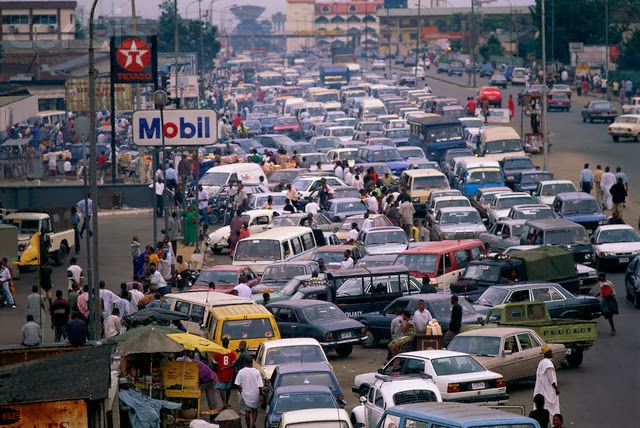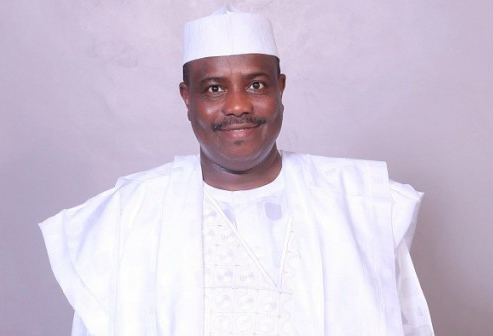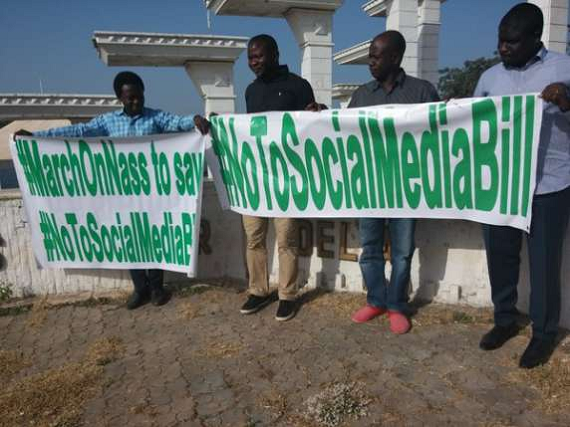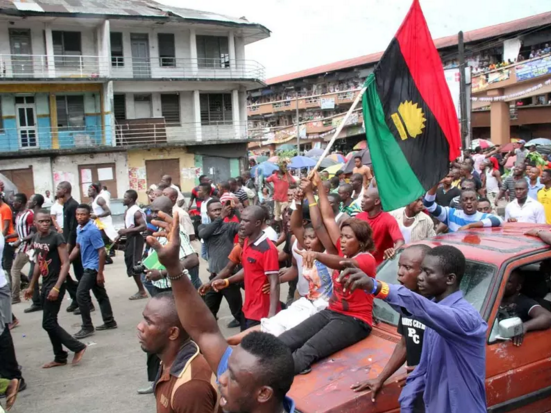By simbo olorunfemi
In the wake of the scarcity of petroleum products being experienced in the country, a number of people who were not for the removal of subsidy or were, at best, ambivalent, have come down from the fence. They have being moved to publicly call for a removal of the subsidy. That, in itself, is not unexpected. Frustration and exasperation with what is going on, will justifiably lead anyone in that direction. That can hardly be faulted.
Yet, dire as the situation might be, I remain unconvinced that the solution to the problem being experienced in the downstream sector, manifesting in the scarcity or non-availability of the products, is as simple as it seems. I do not think ‘subsidy’ is the issue, so do not think its removal will magically bring a resolution to the issue.
Since this is in itself a public response to a private enquiry which seems to assume that I am against the removal of subsidy on petroleum products, let me restate the position I have canvassed over the years – I do not have a problem, in principle, with the removal of subsidy on any product, including petrol, if proven to be in the overall interest of the economy. But due thought must be put into interrogating the effects of such an action before proceeding with it. Whatever is to be done should take into account the following:
1. There is nothing wrong or unusual with subsidy as an instrument for shaping economic direction and/or outcome
Advertisement
2. There is yet to be established, at least to me, a proven case of subsidy on petrol
3. The subsidy computation process is rigged – with a largely fraudulent accommodation made for costs that cannot, under normal circumstances, be justified.
4. The pre-arranged provision for payment for demurrage, differentials on cost of forex, interest on bank loans, etc. does not make sense. It only rewards inefficiency, at huge cost to the government and Nigerians and can be eliminated
Advertisement
5. What has been established, so far, under the prevailing regime, is not subsidy but a rent-seeking system fashioned to benefit Banks, Traders, Government Officials and all sorts of Middlemen
6. It is not the price of petrol that is being subsidised. It is the rent added to the actual cost that is being paid to those who have rigged the system by the government
7. There is little doubt that the system is loaded with inefficiency and corruption, so rigged, that at a point, some players even received payments for non-existent imports.
8. It has been difficult to establish the existence of subsidy, in the true sense of it, given the opaque nature of the process.
Advertisement
9. It was particularly hard to establish the facts under the previous administration, more for a lack of political will on the part of the leadership and the entrenched foothold by those benefitting from the skewed system.
10. A transparent interrogation might, as well, reveal that petrol is indeed over-priced because of all that has rigged into the computation process.
11. It is equally important to note that the call for the removal of subsidy, even before it establishing its existence and quantum, is a call for an increase in pump price of the product.
12. It must also be said that for an informed decision to be made for or against it, the facts must be established.
Advertisement
13. Indeed, an increase in price does not necessarily translate to availability nor does it guarantee a cure of the apparent defects in the system.
14. In any case, our private sector, as presently configured, is wont to take advantage of a free-wheeling regime to exert maximum toll on the consumers.
Advertisement
15. This is particularly important, because keeping the price of petrol down has direct correlation and/or impact on the lives of a lot of Nigerians.
16. We must also note that contrary to the argument made that those who benefit from cheaper petrol is actually the elite, with many cars, it is really those at the bottom of the pyramid who are more directly affected by an increase in the price of petrol, as they lack the cushion and have little room for manoeuvre unlike those at the top.
Advertisement
17. Equally to note is the fact that an increase in the price of petrol negatively impacts the pockets of those at the bottom – with immediate, direct and disproportionate increase in the cost of transportation for them and the food mostly consumed at the bottom of the ladder.
18. More importantly and strangely often overlooked, is the fact that the informal business (the hidden hand behind the resilience of Nigerian economy to all the shocks) virtually runs on petrol. The barber, Vulcaniser, Hair-dresser, Okada and Keke Drivers, and the rest of the team depend on petrol to run their businesses. An increase in price has immediate negative impact.
Advertisement
19. Even the semi-formal SMEs, the professionals in practice largely depend on petrol to power generators to run their businesses.
20. When some argue that subsidising the cost of petrol amounts to subsidising consumption, it becomes difficult to see the point they seek to make, when the reality at the bottom of the ladder is considered.
21. Petrol does not power ‘I better pas my neighbour’, to validate conspicuous consumption, but a desperate clutching onto the straw for survival, in the face of great odds stacked against them.
22. Petrol is a production input for a number of businesses in Nigeria, especially in the services sector whose contribution has now been acknowledged in the GDP.
23. An increase in price of petrol directly and indirectly affects the cost of doing business. It affects job creation and employment, especially at the bottom.
24. It is the people at the bottom, the most vulnerable that will be adversely affected by an increase in pump price of petrol.
25. This category of Nigerians have had enough, to put it mildly. Any thing that adds to their burden or further complicates life, for them, is unfair.
26. A knee-jerk reaction to scarcity by way of removal of subsidy (increase in pump price), without considering all the dimensions involved, will be counter-productive.
27. What we are trying to do is to directly pass the rent being extracted from government, directly to the consumer and it does not make sense.
28. What we are faced with is the failure of governance on the part of agencies of government. Allowing them to abdicate responsibility and passing the trashcan to the poor is unkind.
29. We must realise that the issue of scarcity of petroleum products is not one founded on the legs of a subsidy regime alone. Protest against the delay in the payment or refusal to import products is only a smokescreen for a deep-seated unease with the effort to cleanse the system.
30. The non-availability of products has more to do with what the man who should know, has described as “critical systemic issues posing as challenges to seamless supply and distribution of petrol”.
31. The challenges that come with storage in private tank farms and the dysfunctional distribution structure are as contributory to the crisis, as issues to do with sabotage of the system by some of the players.
32. Removal of subsidy will not magically fix these problems. Rather, the problems can be fixed and ought to be fixed before a meaningful debate on an increase in pump price can hold.
33. To seek to pass to the people the rent built into the supply process and that foisted by an inefficient, sabotage-prone system, by way of removing subsidy which is only a euphemism for increasing pump price of petrol, is not only unfair but unwise.
So, what do we do?
1. Interrogate all the issues with the refining process of petrol locally, while addressing the distribution challenges being faced
2. Confirm the quantity being delivered by the local refineries and project on deliverable from them in the immediate and near future
3. Confirm if NNPC can consistently deliver on 50% of proven need, as has been speculated
4. Explore the process of refining part of the crude allocated for local production, abroad and bring in the refined products for distribution
5. Confirm the actual landing cost of products brought in by marketers, when stripped of the rent and the influence of the inefficient bottlenecks at the point of delivery are curtailed
6. When all that has been done, the actual cost of ‘subsidy’, if there is any, will be well established.
7. We also need to confirm the level of progress being made by the privately-owned refineries, especially the Dangote refinery which has the capacity to surpass local need. Please note that Dangote projects to sell petrol under the umbrella of the prevailing rates, which means cost can be covered and profit made at the present pump price.
8. We can then make a projection on the basis of the information gathered – if there is any need for subsidy payment to be made, in the interim; how much ought to be paid, and how long that regime will last, seeing this as only an interim measure.
9. This will only subsist until when, between local refining and importation of products from refining abroad, local consumption need is met.
10. That, in itself, is only a temporary measure before products from private refineries hit the market, with supply outstripping demand.
So, I argue that the present scarcity of the product does not establish, for me, a case for the removal of the subsidy on petrol, even if proven. For me, it is a simplistic argument to make and it beggars the real questions at the root of the problem. To assume that once you outsource a problem to the private sector, all will be well and the market will simply sort things out, is to be mistaken.
Some have even taken the decision by the government to pay N413 billion subsidy arrears as negating the position earlier, publicly taken by President Buhari. I wonder how many of them actually realise that the bulk of the payment being made, in this instance, is reportedly, for supply made under the previous administration, some as far back as 2014.
A careful interrogation should establish what the facts are, which will help us make an informed decision on this matter. There is nothing in the call for a removal of subsidy on petroleum products that recommends itself to me as the needed magic for the situation we are faced it. It is only a knee-jerk, simplistic response to a complicated matter. What is missing is a robust and strategic communications machinery to properly place the issue before the public, tell us where we are and show us the way forward. Otherwise, the issues will not as be muddled up, as we have at the moment.
Olorunfemi works for Hoofbeatdotcom, a communications consultancy
Views expressed by contributors are strictly personal and not of TheCable.
Add a comment






